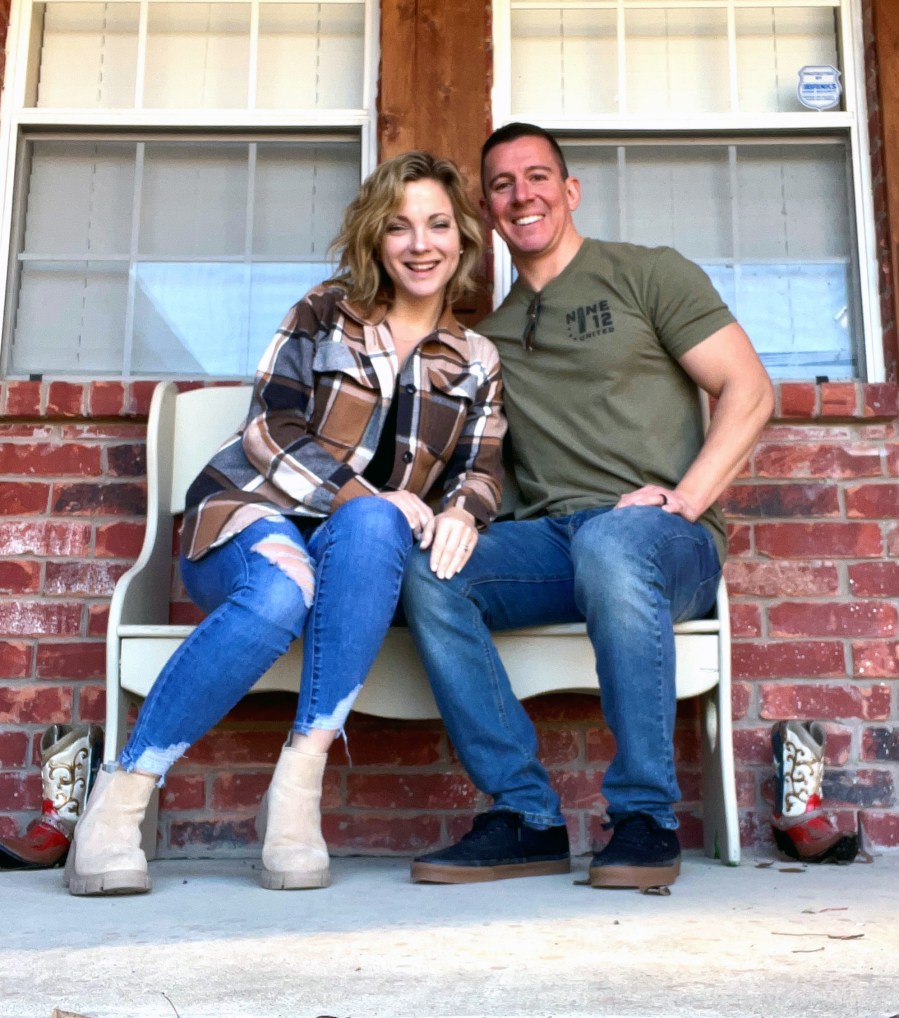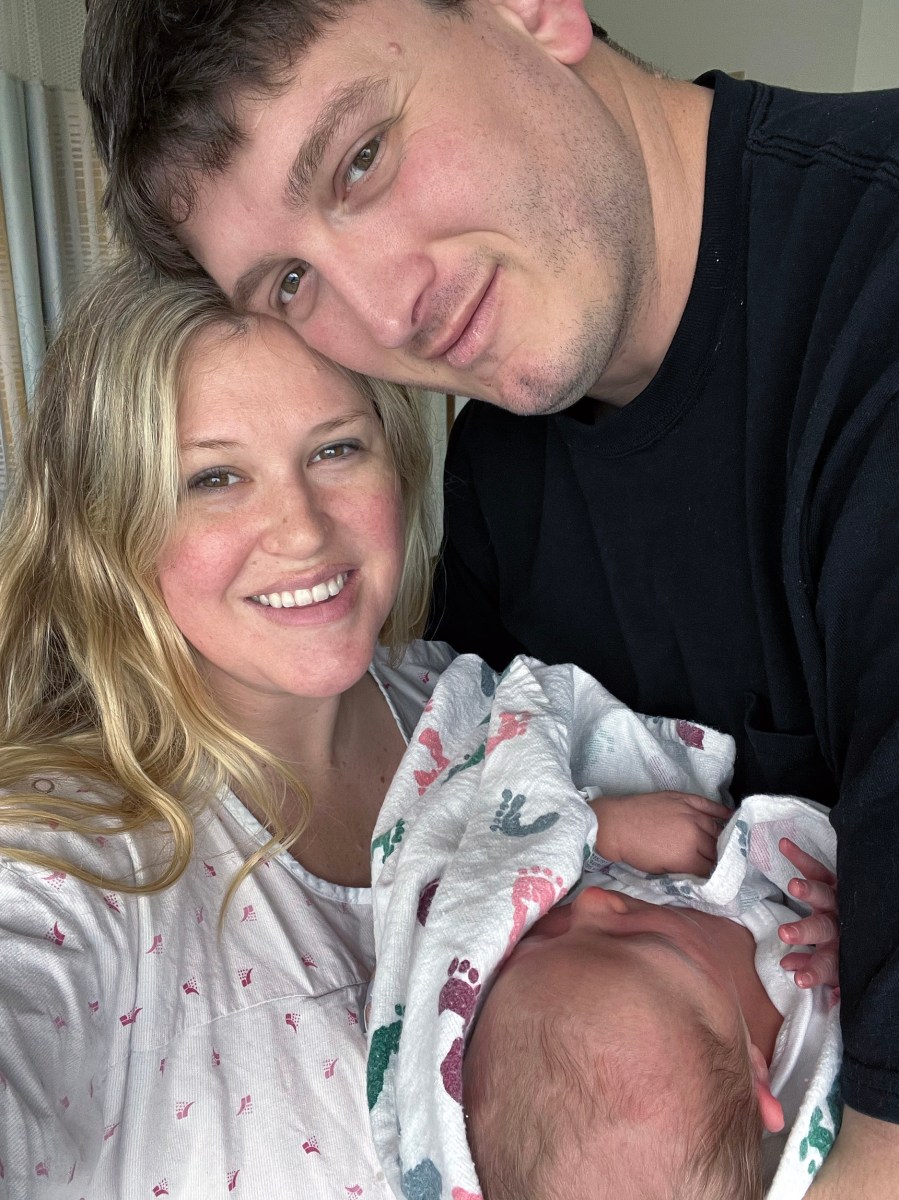Just over a year ago, Kimberly and David Manzano were eagerly trying for their first child. After they suffered a miscarriage in November of 2022, Kimberly Manzano found out she was pregnant just two months later. The couple was elated.

But 10 weeks into the pregnancy, they heard news from a fetal specialist that rocked their world — the baby had several abnormalities.
The couple, who live in the Dallas/Fort Worth area and are devout Christians, didn’t lose hope, however. They sought out second and third opinions with pediatric surgeons and maternal fetal medicine physicians in Texas. After a fetal MRI revealed several more severe complications to their baby, including a leakage of spinal fluid due to the spinal cord not having fused, a missing kidney, a defect to the baby’s abdominal wall, and a lack of genitalia, the Manzanos knew they were looking at a fatal pregnancy. Both Kimberly and her husband were heartbroken and devastated.

“We literally walked into our worst nightmare,” said Kimberly Manzano, 34.
But despite doctors telling the Manzanos that the baby “would never see the outside of the hospital,” they were unable to advise her medically on termination options, Kimberly Manzano recounted. That’s because Texas, like several other states with abortion bans, does not have exceptions for lethal abnormalities. Currently in the state of Texas, abortion is illegal. The state has a pre-Roe abortion ban, a six-week abortion ban, and a trigger ban (a ban on abortion known as The Human Life Protection Act that took effect after the Supreme Court overturned Roe v. Wade), with exceptions for the life and health of the mother.

“My hands are tied,” Kimberly Manzano recalled her doctor saying. “If it was my son, I would want him to be with God now sooner than later.” The nurse at her doctor’s office then sent Kimberly Manzano the name of an abortion clinic in New Mexico over email, leaving it to her to send her medical records to the New Mexico clinic in order to avoid ties or communication with the abortion clinic.
After long deliberation with their pastor, family and friends, the Manzanos decided to travel to New Mexico for an abortion — the very thing she admitted she had always been strongly against.
Kimberly Manzano is the latest plaintiff to join the ongoing case, Zurawski v. State of Texas. The lawsuit was filed by the Center for Reproductive Rights on behalf of Texas women, like Kimberly Manzano, who were allegedly denied abortions despite serious pregnancy complications. The lawsuit was originally filed in March and started with seven plaintiffs and has since grown to 22, including 20 women who were denied abortion care and two Texas obstetrician-gynecologists. This is the first apparent lawsuit led by women affected by the abortion bans since Roe v. Wade was overturned in the summer of 2022.
In August, a decision in the case by a Texas District Judge brought a temporary block to the state’s abortion law, letting doctors use their own medical judgment to determine when to provide abortion care. But on the same day, an appeal filed by the office of Attorney General Ken Paxton — who has been a fierce defender of the current abortion law — blocked the judge’s order from taking effect. On Tuesday, the Texas Supreme Court will hear oral arguments on whether to uphold the ruling.
“What we are essentially asking the courts to do is to translate this non-medical terminology in this abortion ban into language physicians can understand, so that they know they can provide a standard of care treatments to their patients, and that they can exercise their medical judgment,” Marc Hearron, a senior attorney for the Center of Reproductive Rights said. Hearron said that while this is still a narrow case, that won’t restore abortion access across Texas, it’s a step in the “right direction” in securing women’s essential healthcare in the state.
Lauren Miller, from Dallas, Texas, is one of the original plaintiffs in the lawsuit. Like the Manzanos, Lauren and her husband were eagerly awaiting to get pregnant with a sibling for their first son.
Then when their son turned 1 in 2022, they found out they were pregnant — not with one but with two babies. “Here we go again!!!!,” she wrote, in the first entry of her pregnancy journal.

“We were really excited. We had wanted to have kids fairly close together,” Miller recalled. Then at 12 weeks, Miller learned that one of her twins had trisomy 18—a condition that causes multiple structural abnormalities.
When she had conversations with her doctors about what that meant, she was frustrated at the lack of clarity she received. She blames the Texas abortion ban laws for the fear she believes prevented her medical team from being direct about what her condition meant and the medical care she needed. “It just eliminates trust in a healthcare environment,” she said.
In a conversation with a genetic specialist Miller recalled, “The genetic counselors would be going down a train of thought, and then just stop in the middle of a sentence, and you could just feel the fear. They were scared to say anything else, and then they would start apologizing to us. And then we were apologizing to them because their job has become impossible. They’re trying to help us through the worst news that we’ve ever received, and she can’t say anything. She’s trying to counsel us and she can’t do that.”











